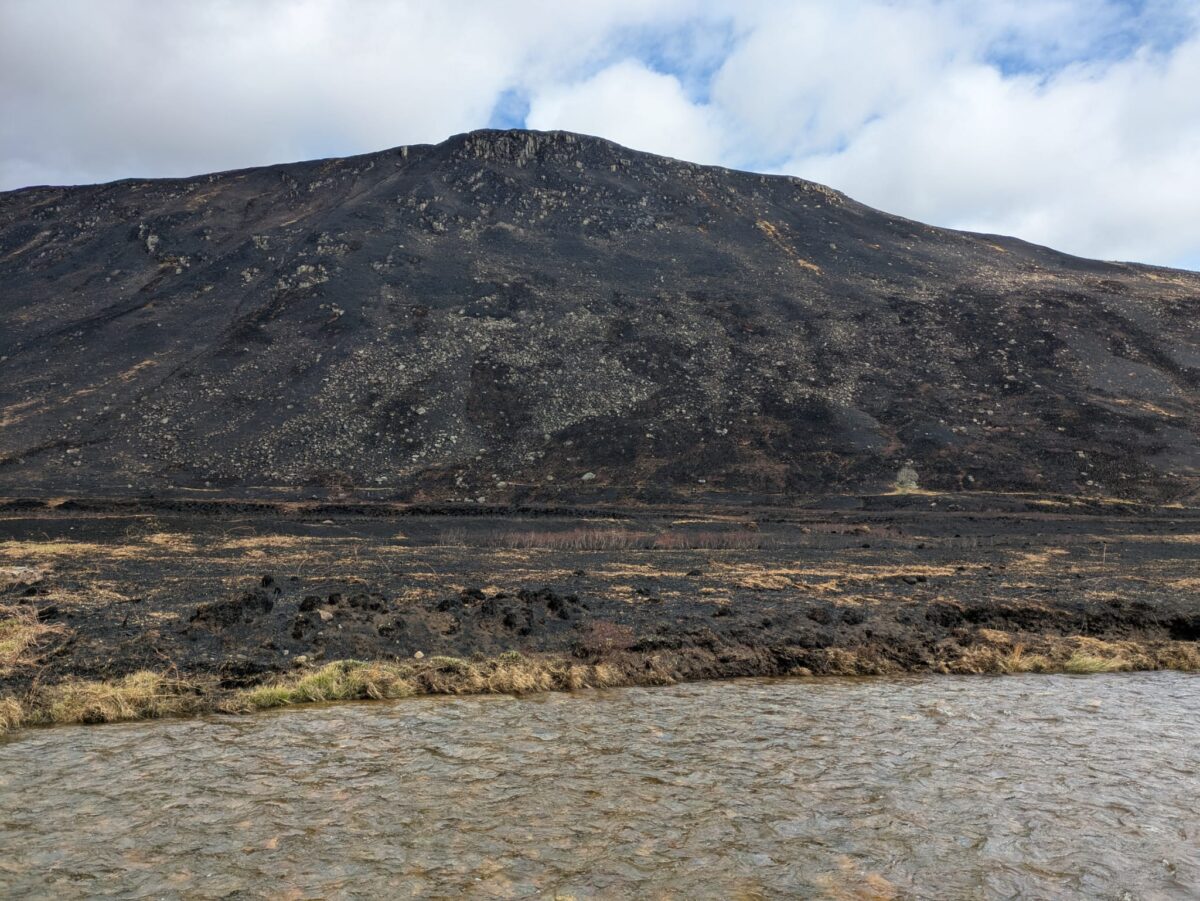In a recent article in The Scotsman, Sandy Winterbottom talks about the ‘extreme’ wildfire alerts all summer, the areas seeing barely a drop of rain for weeks, and the reversal of the Scottish climate towards warmer, wetter winters and dry, very hot summers. The article has an interesting title, connecting directly fossil fuel companies with wildfires in Central Scotland where she lives: “Fossil fuel industry I once worked for now threatens to burn my house down“. Sandy has been working in the climate change sphere for decades.
At the same time, communities in Scotland and around the UK are experiencing prolonged heat and wildfire risk, yet public conversation often falls back on familiar lines – “it’s weather, not climate”, “every year is different”.
We often assume that people living through extreme weather will naturally become more supportive of climate policy. That if your town burns, floods, or bakes, belief will follow experience. But do floods and fires really change minds on climate? Apparently not. A recent global study published in Nature explains why (Extreme weather event attribution predicts climate policy support across the world | Nature Climate Change). Spanning 68 countries and over 70,000 people, the study shows that exposure alone doesn’t move the dial; attribution does. Researchers found that while most people are exposed to extreme weather, “it’s not this exposure that predicts support for climate policy; it’s whether people believe that climate change caused those events”. In short, it’s not what happens that matters. It’s why we think it happened that matters most.
This “subjective attribution” was a stronger predictor of climate policy support than actual exposure for 5 of the 7 types of extreme weather studied, including floods, cyclones, heatwaves, heavy precipitation and winter storms.
And it’s not just the UK: in many countries, especially across Africa and parts of Europe, the link between extreme weather and climate remains under-recognised, even when events are increasing. Public understanding of attribution is lagging. We spend billions modelling exposure, but we undervalue the power of communicating direct attribution and making it accessible.
Linking wildfires to fossil-fuel companies

Attributing things to climate change is just the first step; and it is not enough. The science of attribution is evolving fast. Instead of just attributing catastrophic events to climate change, a recent study published again in Nature showed how individual fossil fuel companies are making previously impossible heatwaves happen (Systematic attribution of heatwaves to the emissions of carbon majors | Nature). It found that the emissions from any one of the 14 biggest companies were by themselves enough to cause more than 50 heatwaves that would otherwise have been virtually impossible.
Image: Arran Wildfire (credits: Holly Tulika)
It even went as far as to showcase links with particular companies. Carbon pollution from ExxonMobil’s fossil fuels, for example, made “51 heatwaves 10,000 times more likely than in an unheated world”, the researchers found, as did “the emissions from Saudi Aramco”.
The findings have been hailed as a “leap forward” in the legal battle to hold Big Oil accountable for the damages being caused by the climate crisis. Prof Sonia Seneviratne, at ETH Zurich university in Switzerland and a senior author of the report, spoke to the Guardian about its usefulness in “establishing potential liability”, while Dr Davide Faranda, a research director at the French National Centre for Scientific Research and not part of the study team, said that this bridge between specific climate events and the companies that enabled them could become “a cornerstone for legal and policy action” (Carbon emissions from oil giants directly linked to dozens of deadly heatwaves for first time | Climate crisis | The Guardian).
Meanwhile, Cassidy DiPaola, a spokesperson for the Make Polluters Pay campaign, speaking to the Guardian emphasised that we’re finally “ talking about real people who died, real crops that failed, and real communities that suffered, all because of decisions made in corporate boardrooms.”
Amidst important recent legal developments such as the International Court of Justice’s ruling in July that failing to prevent climate harm could result in having to pay compensation, the study looks like it came at the perfect time: “Here’s the evidence the courts have been waiting for”, DiPaola mentions.
The road for legal accountability is long and filled with potholes. But attribution isn’t just a scientific tool or a legal tool. It could be the most powerful lever we have yet to campaign for change and create mindset shifts. We need to popularise it, make it understandable, accessible, refer to it in our work.
This all comes amidst a really important poll published some days ago from Climate Outreach and More in Common showing that, despite all the noise, there is still robust public support for climate action: ‘Quiet sense of pride’: Large majority of Brits back ambitious climate action | BusinessGreen News
While the slide in levels of support for net zero is really concerning, there is a risk of over-stating the scale of opposition and undermining the extent to which large majorities are still concerned about climate change, still like clean technologies, and still want political and business leaders to deliver ambitious climate action. And with the far-right mobilising relentlessly and greenwashing themselves, attribution can be a foundational building block on the road to our own relentless mobilisation.

